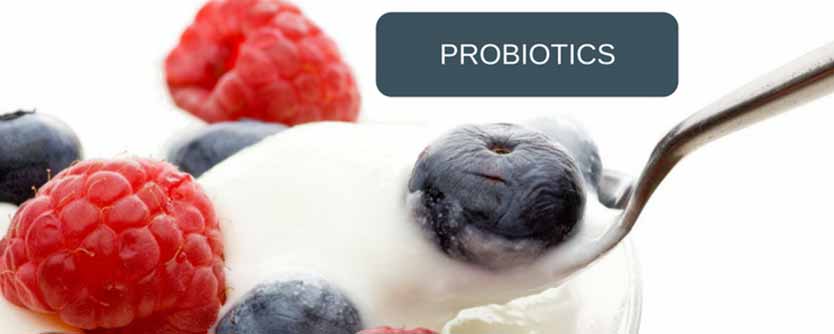The definition given by the World Health Organization (WHO) for probiotics is “live micro-organisms which, when
[the_ad id=”6150″]administered in adequate amounts, confer a health benefit on the host.” Probiotics are called as good and helpful bacteria. The meaning of probiotics is “for life” (pro-biota). Probiotics have been in our system right from the moment of formation of the fetus in the birth canal. Probiotics are bacteria and yeasts that are good for health, especially the digestive system to keep our gut healthy.
Availability of Probiotics
- Probiotics are found naturally in the body and also available as food supplements in the form of capsules, liquids, chewables, and skin creams.
- It is the third most commonly used dietary supplement after vitamins and minerals.
Types of Probiotics
There are many types of probiotics available. The most important and commonly used probiotics are Lactobacillus and Bifidobacterium.
- Lactobacillus – The most common probiotic, found in yogurt and helps with diarrhea and lactose intolerance.
- Bifidobacterium – It is found in some dairy products and help with IBS (irritable bowel syndrome – cramping, abdominal pain, bloating, diarrhea and constipation) and other conditions.
How Do Probiotics Work?
A problem in the digestive system affects every physiological system in our body. Many toxins we are subjected to in our current environment can affect the function of the digestive system and our ability to utilize nutrients. Our gut has approximately 85 % good bacteria and 15 % bad bacteria. When the ratio gets out of balance, probiotic-rich food and supplements will help improve the ratio.
Excessive intake of antibiotics, high carbohydrate diet, non-organic meat, sugar, tap water, GMO foods (genetically-modified foods), grains, emotional stress, etc., can kill off the probiotics in our body. Over a period, the damage to the digestive tract increases the need for probiotics supplement.
Uses of Probiotics
- They help move food through the gut in IBS, IBD (inflammatory bowel disease – inflammation in some parts of the intestine), diarrhea, fight food-borne infections and Helicobacter pylori infection.
- They also help in conditions like eczema.
- Probiotics are helpful in maintaining urogenital health and restore the balance of microflora of the vagina (yogurt is used as a folk remedy with limited support) and also helpful in urinary tract infection.
- They can reduce the risk of certain recurrent common infectious diseases.
- They reduce crying time in colicky babies.
- They are beneficial for brain function, and it improve the immunity function.
- Lactobacillus probiotics are much useful to reduce cholesterol level (LDL – bad cholesterol) and blood pressure.
- They also prevent allergy, cold and maintain good oral health.
Side Effects of Probiotics
Probiotics are not all alike. The effect of probiotics varies from person to person. Although some probiotic formulations have shown scientific evidence to support the uses of probiotics, for most of the conditions it is lacking. Information on long-term safety is limited. The common side effect of probiotics is diarrhea. The risk of serious side effect may be higher in people who have underlying health conditions. Though considered safe, there is a theoretical risk for people with impaired immune function.
Source:

